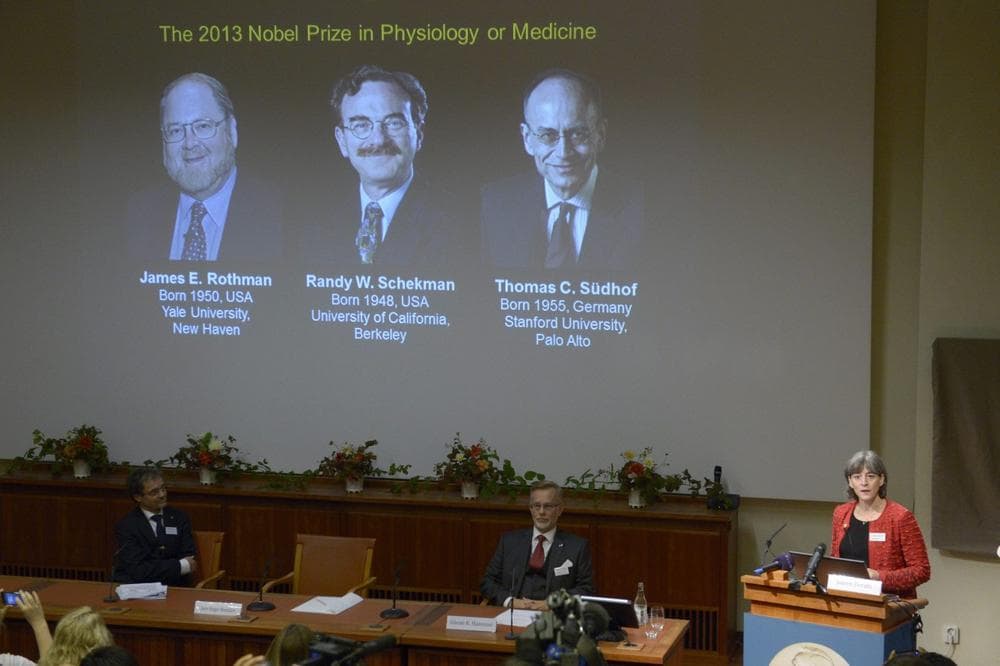Advertisement
Sounding The Alarm For Basic Science Research Funding
ResumeThis year’s Nobel laureates and more have sounded the alarm bell on funding basic science research. We talk to them.

A big American haul of Nobel Prizes in science again last week. The United States, not alone but surely again the envy of the world on the Nobel stage. But when those Nobel winners turned to speak of their prizes, there was a remarkable consistency in their theme: America, wake up. The great basic science research that won us these prizes, they said, is not going on in the way that it did in the USA. It’s about leaner times. It’s about imagination. It’s about commitment. They’re saying change now or it won’t be us on that stage soon. Up next On Point: Nobel Prize winners on American science now.
-- Tom Ashbrook
Guests
Bruce Stillman, President and chief executive officer, Cold Spring Harbor Laboratory, member of the Board of Scientific Advisers of the National Cancer Institute and of the Board of Life Sciences of the U.S. National Research Council.
Dr. James Rothman, professor of biomedical sciences and chemistry at Yale University, chair of the Yale Department of Cell Biology and shared winner of the the Nobel Prize for Medicine in 2013.
Arieh Warshel, distinguished professor of chemistry at the University of Southern California and a fellow of the National Academy of Science, shared winner of the Nobel Prize for Chemistry in 2013.
From Tom's Reading List
Science: NIH Details Impact of 2013 Sequester Cuts — " The bottom line is as grim as expected: The agency's overall budget will fall by $1.71 billion compared to 2012, to $29.15 billion, a cut of about 5%, according to an NIH notice today. That is essentially what NIH predicted as part of the 5.1% sequestration. (Including transfers to other agencies and other adjustments in the spending bill funding NIH in 2013, the total reduction is $1.71 billion or 5.5% compared to 2012.)"
Mother Jones: Could This 2013 Nobel Prize Winner Afford College Today? -- "When Randy Schekman attended the University of California-Los Angeles in the late 1960s, getting a good college education was unimaginably cheap. Student fees were just a few hundred dollars; room and board was a few hundred more. 'I could work a summer job and pay myself for the whole school year,' says Schekman, now a cell biologist at the University of California-Berkeley."
Wired: How The Shutdown Is Devastating Biomedical Scientists and Killing Their Research — "I don’t think the public realizes the devastating impact that this has on scientific research. Scientific research is not like turning on and off an assembly line. Experiments are frequently long-term and complicated. They involve specific treatments and specific times. You can’t just stop and restart it. You’ve probably just destroyed the experiment. You also can’t necessarily recover. You can’t begin an experiment all over again. If you do, you’ll be set back months — if there’s even time and personnel to do it. But often, science moves rapidly, times change, and you can’t re-initiate the experiments. It’s an enormous loss to scientific research, an enormous loss of time and personnel."
This program aired on October 15, 2013.